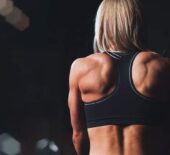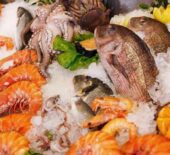We all get injured at some point in our life and your diet plays a major role in the rate of your recovery. Here are some of the nutrients, vitamins and minerals which play roles in promoting your healing:
- Energy!
We need for energy in our daily life to stay alive. Energy comes in the forms of protein, carbohydrate and fat and is needed for the body to have the energy to not only stay alive but also to heal. The goal when promoting healing is to use carbohydrates or fats for energy over protein. Protein is needed for healing of all the cells in your body and you want to reserve the role of protein in your diet to be specifically to heal not to use for energy.
- L-arginine
Protein is made up of things called amino acids, one amino acid which becomes essential to complete a protein when you injure your body is L-arginine.
What does L-arginine do?
- Decreases muscle loss
- Heals the skin of a wound faster as it helps collagen synthesis.
- Helps you immune system work better during the healing process.
Where can you get L-arginine?
The first place to go is foods which are animal based. These contain all the essential amino acids needed for a protein cell to be created. During wound healing you may need up to 9g of L-arginine a day. I recommend seeing an Accredited Practicing Dietitian to make sure you are covering your needs and determine if supplementing with other commercial based products may be needed.
Where can you get animal protein?
- Meat
- Chicken
- Turkey
- Fish
- Eggs
- Nuts
- Yoghurt
- Cheese
- Custard
Another great source of protein which is not animal based are beans and legumes e.g. chickpeas, kidney beans. Most legumes are not a ‘complete’ protein as they do not contain all the amino acids needed to make the whole protein but when eaten in combination with other non-animal protein sources like whole grains, nuts and seeds they can become complete.
The vitamins and minerals needed for healing are like the nuts and bolts in the system to allow the healing process to occur are:
- Vitamin C – Sources include citrus fruits, berries, tomatoes, broccoli, capsicum.
- Vitamin E –Can be found in vegetable oils, nuts, green leafy vegetables.
- Vitamin A – Found in milk, cheese, eggs, fish, margarine, butter, dark green leafy vegetables, oranges, red fruits and vegetables.
- Zinc –Found in red meat, nuts, fish, shellfish, milk products, chicken, wholegrain cereal products, beans.
- Iron- Found in red meat, organ meat, eggs, wholegrain bread, dark green leafy vegetables, dried fruit and nuts. (Note: To increase the absorption of iron from the non-animal sources these should be paired with vitamin C.)
One more important factor often forgotten is fluid! If you are dehydrated your skin becomes drier and this makes healing a lot harder for your body. When you are hydrated the blood flows through the body a lot more easily and this helps things be removed and replaced for healing easier, good news if you want to heal at a faster rate.
Take home message: You may not be able to stop injury from occurring but you do have control over the rate of your recovery through optimal nutrition.
Reference
- Assoc Prof Geoff Sussman DBM, Ashley Sandison APD. Wound Healing [Internet]. Australia: Dietitians Association of Australia; 2009 [cited 10/10/2016]. Podcast. Available from: http://www.webpresent.com.au/present/daa/daa_05062009_nutritionandwoundhealing/player.html







